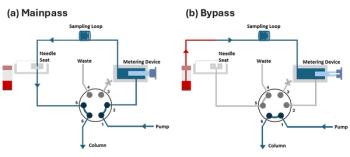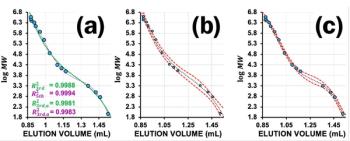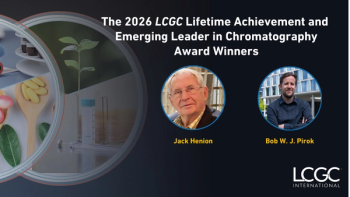
MS in the QC Lab
This Monday morning session explores the various issues that arise in the quality control laboratory. Jason Rouse of Phizer, Inc. will chair the session, which will be held in Ballroom 20 BC on the upper level, from 8:30 to 10:30 pm.
This Monday morning session explores the various issues that arise in the quality control laboratory. Jason Rouse of Phizer, Inc. will chair the session, which will be held in Ballroom 20 BC on the upper level, from 8:30 to 10:30 pm.
Richard Rogers of Just Biotherapeutics in Seattle, Washington, will give the first talk, “Improving Critical Quality Attribute Coverage and MAM Thoughput by Leveraging a Multi-Enzyme Multi-Attribute Method.” He will present a 4X improvement in the throughput of Multi-Attribute Method (MAM) by leveraging a dual column UPLC and Multi-Enzyme MAM.
Next, Jason L. Richardson of Amgen will present “Unattended Just-In-Time Antibody Digestion and Analysis on a Regular LC/MS System Without Additional Equipment.” His talk will examine a new method that is suitable for protein structural characterization, quality attributes analysis, and peptide-based MAM.
Following Richardson, John Scheil of NIST give a talk titled “Mass Spectrometry-Based Characterization of a Non-Originator NISTmAb.” Extended characterization data from the NISTmAb in comparison to a non-originator NISTmAb will be presented to highlight the complexity of historical knowledge space generation.
Sarah Rogstad of the Food and Drug Administration will be the next speaker, presenting “Development and Assessment of the Multi-Attribute Method (MAM): New Peak Detection and Orthogonal Method Comparisons.” The study addresses certain considerations to better assess the applicability of method.
Robert Birdsall of Waters Corporation will follow Rogstad with a presentation titled “Streamlining the Identification and Monitoring of Product and Process Attributes in Biopharmaceutical Development and QC with MAM-based Workflows.” The study generated a data set representative of a process development setting to demonstrate how these challenges can be addressed with a single CDS platform with MS control and data processing capabilities.
The final presentation will be from Phillip Anderson of Avista Pharma Solution. Anderson’s talk is titled “ID Testing by HRMS of Large-Molecule Biological Reagents for GMP Manufacturing.” This study determined that electrospray ionization high-resolution mass spectrometry is well-suited for specific and reproducible methods for the identification of biological reagents.
Newsletter
Join the global community of analytical scientists who trust LCGC for insights on the latest techniques, trends, and expert solutions in chromatography.




